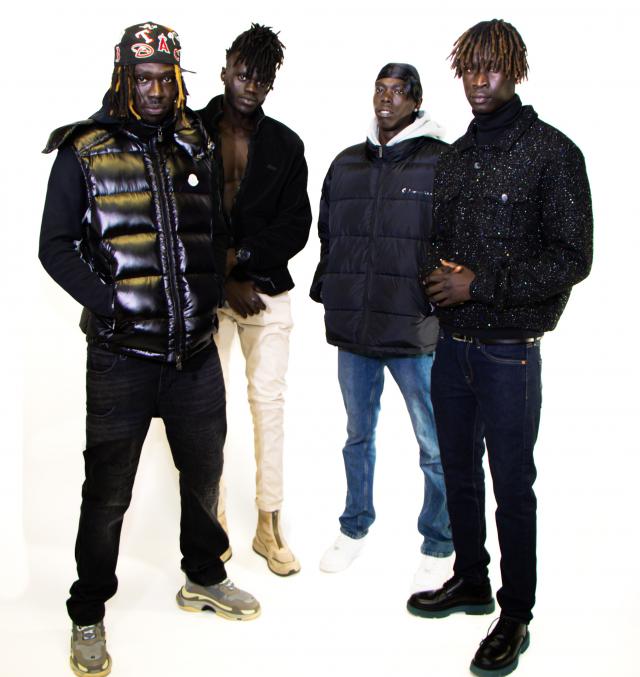
By Afraa Kori
A group of South East South Sudanese independent artists are ready to take their music to the next level and put their country on the map.
Dandenong-based artist Mike Wang, Cranbourne artists Prez, 700Kae, YTS Gucciboi, Mobstah and GS Phantom and Pakenham’s Yung Baddie represent the world’s youngest nation, South Sudan.
Despite pursuing music for more than five years and being a citizen of a multicultural country, 700Kae said the path to getting wider recognition from the Australian public is still inaccessible in many ways.
“If you look at America, the biggest musicians are black, same with the UK,” he said.
“But you look at Australia and there’s not one big black artist, it doesn’t make sense because the talent I see in my area from South Sudan artists blows my mind.”
Prez said there is often a disconnect between both sides to allow South Sudanese artists to reach mainstream success.
“Maybe if they could relate to us, see that what we’re building is actually something worth supporting, while we engage with them and stay connected, then a bridge could be formed,” he said.
Prez said South Sudanese independent music artists also face financial barriers to finding success in Australia’s mainstream music industry.
“The biggest struggle of being a South Sudanese artist is gaining more exposure in spaces such as radio, and the lack of access to funding and resources,” he said.
“Many artists do not have the support of a major label, which means that they are often responsible for financing their own music production, promotion, and touring.”
Yung Baddie said a number of South Sudanese independent artists are starting their own wave and are demanding more support.
“I do believe that there are many talented and gifted South Sudanese artists in this city,” he said.
“We just need to do a better job.”
YTS Gucciboi said there a number of ways the industry can support local South Sudanese artists.
“We can start by hosting events for the musician artist or connecting them with the resources that they need, having a studio, community centre and any type of ways that can help us get to where we heading or even having to fund the artist so that they pay off music-related payments,” he said.
700Kae said their struggle to reach success are part of their stories.
“If we showed our artists the love that these other communities show their artists, we would have gone a long way in the music industry a long time ago,” he said.
“This is what makes our stories even better, we have to work harder for it so when our time comes success is gonna be sweet.”
Prez said more engagement within the community is key to achieving success.
“When people are really involved with the shows, supportive of the releases and projects that come out, and share the music with their friends and family, that does a lot for the independent artists here in Melbourne,” he said.
Wang said while a number of South Sudanese artists recognise there has been improvement, there is still a long way to go in embracing these artists into the mainstream.
“As of recent years, I have seen more leniency towards young artists from parents than it was when I started and others that I know of, but that’s because parents are now starting to understand what it is that we are doing,” he said.
“To be seen and recognised for our greatness is something that is starting to happen and only God knows where it can lead.”
Prez said he believes the industry is on a tipping point.
“Though the mainstream media hasn’t covered much of it, I really think the dynamics will change very soon,” he said.
“Given that more and more talented young Sudanese people are becoming known whether in sports, modelling and the fashion industry, it shines on the Sudanese diaspora as a whole, especially in Australia.
“I do believe the chance needs to be given, not only due to the talent and potential within the arts for a lot of young Sudanese people, but also to give them purpose, something to strive for.”
Yung Baddie said while the challenges exist, their visions have always been clear and their goals have never wavered.
“In the end, you got to prove people wrong because a day will come when the underdogs end up ruling the world,” he said.
Prez said he is looking forward to the future of the South Sudanese music industry in Australia and beyond.
“I plan to take over the music industry and set changes within the foundation for the next generations of creatives and artists, so that it may be easier for them to dream and accomplish than it was for us,” he said.






